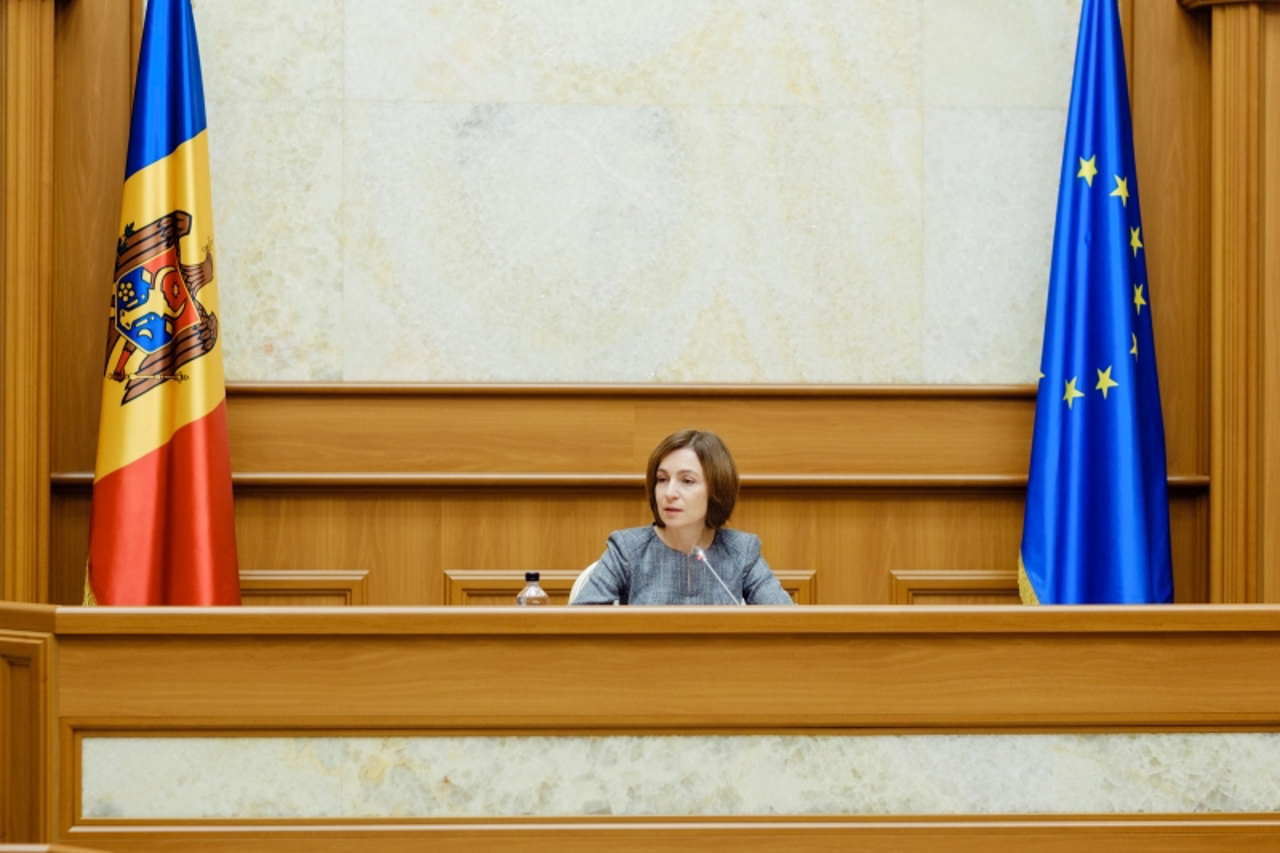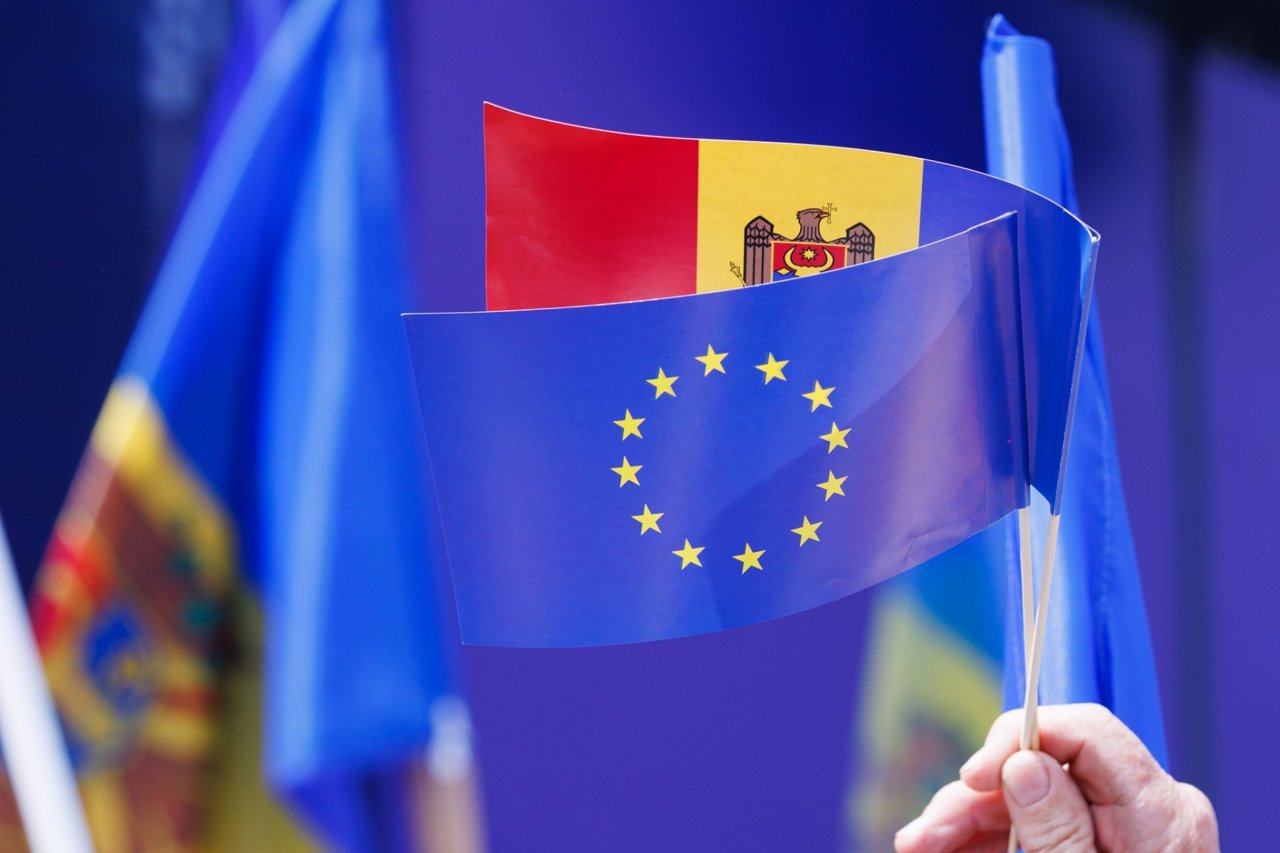LIVE TEXT // Maia Sandu: Moldova is not facing an energy crisis, the Kremlin's stake is "dissatisfaction on the left and right banks"
The energy crisis in the Republic of Moldova remains in the spotlight, amid Gazprom's failure to comply with contractual obligations and the pressure exerted by the Tiraspol regime. President Maia Sandu launched accusations against the Russian Federation and said that the authorities in Chisinau are making efforts to ensure energy stability on the right bank of the Nistru and to support the affected population. The conclusions of the Supreme Security Council (SSC) were presented by Maia Sandu during a press conference organized at the Presidency.

13:40 Compensations for economic agents should limit price increases
The compensation program for economic agents aims not only to support the competitiveness of companies, but also to limit price increases for consumers.
"On the one hand, we want to protect the competitiveness of economic agents, and on the other hand, to prevent price increases. That is why, this program comes to partially offset the additional costs and encourage the implementation of more efficient technologies,” said Maia Sandu.
The head of state believes that investments in renewable energy and modern equipment could reduce pressure on prices.
13:30 Maia Sandu: “Gazprom must be held accountable for failing to fulfill its contractual obligations”
Asked about the responsibility of the Government or the presidency in the current energy situation, President Maia Sandu stated that the problem is caused by Gazprom’s refusal to comply with its contractual obligations, emphasizing that the Republic of Moldova has honored its financial commitments.
“Gazprom must be held accountable for failing to fulfill its contractual obligations. The Republic of Moldova has committed itself to paying and we have paid for the gas. I did not sign the agreement with Gazprom, I did not commit myself to supplying natural gas, but Gazprom did,” declared Maia Sandu.
The President also noted that due to the actions taken by the authorities in Chisinau in recent years, the right bank of the Nistru avoided a crisis similar to the one on the left bank. "My colleagues and I have taken quite a few actions in recent years to offer alternatives. Thanks to these actions, today the right bank is not going through the same crisis that the left bank is going through," added Maia Sandu.
13:20 “There is no energy crisis, we keep the pipeline open” – Maia Sandu on the energy situation in the Republic of Moldova
President Maia Sandu said that the Republic of Moldova is not facing an energy crisis, emphasizing that there are alternative routes through which gas can be delivered, and Chisinau is not blocking transit to the left bank of the Nistru.
“There is no energy crisis because there are alternative routes through which gas can come, as happened in the case of other countries, which also received Russian gas through Ukraine. Now some of them receive the same gas from Gazprom on other routes. We are keeping the pipeline open, as I have said every time, Chisinau is not an impediment to gas transit to the left bank,” explained Maia Sandu.
Also, the president accused the Kremlin of using energy as a means of destabilization, refusing to respect its contractual obligations: "The only stake, the only objective is to create a situation of discontent on the left bank and on the right bank and to use energy as an element of destabilization."
13:15 “The tariffs we pay on the right bank are high, we know it”
President Maia Sandu acknowledged the difficulties generated by the high costs of electricity for households and economic agents on the right bank of the Nistru and stated that the Government is working on concrete solutions to mitigate this impact.
“The tariffs we pay on the right bank are high, we know this. We want to ensure that economic agents and households will also get through this period more easily. The Government has a mechanism through which it will compensate up to 50% of electricity costs. In the coming days, the Government will present more details about this program,” declared Maia Sandu.
In parallel, the authorities are pursuing medium-term investments in renewable capacities, which have increased significantly, from 170 megawatts in 2021 to 600 megawatts currently. Also, the Isaccea-Vulcănești power line, essential for the country's energy security, will be completed by the end of this year.
13:10 Maia Sandu: "What is happening now is a form of pressure, involving Tiraspol"
President Maia Sandu accused the Russian Federation of continuous destabilizing actions in the Republic of Moldova, using the Tiraspol regime to exert pressure on Chisinau.
"In recent years, the Russian Federation has undertaken several destabilizing actions on the right bank and has tried each time to involve the Tiraspol regime. What is happening now is a form of pressure, involving Tiraspol. This is not the first time that we are facing these situations. The citizens of the Republic of Moldova have gone through such blows caused by the Russian Federation and when it confronted us with the blockade of wine and fruit exports, we have also had situations with the use of energy as blackmail. We went through this because we were in solidarity and this is what we must continue to do," declared Maia Sandu.
13:05 Tiraspol refuses Chisinau's help to solve the energy crisis
Chisinau proposed to Tiraspol, since November, to discuss solutions to the energy crisis, but the de facto authorities on the left bank of the Nistru River rejected the offer.
"They have consistently refused to develop these solutions and the offer of potential humanitarian aid from Chisinau and development partners. They conditioned the aid on the revision of the Customs Code of the Republic of Moldova and other completely irrelevant situations," said President Maia Sandu after the CSS meeting.
We remind you that the energy crisis in the Republic of Moldova has seriously affected the localities in the transnistrian region and the Security Zone, leaving residents and public institutions without electricity, heat and natural gas. The most vulnerable localities, such as Varnița and Copanca, are connected to the infrastructure controlled by Tiraspol and do not have direct connections to the networks on the right bank of the Nistru. Public institutions, including schools and hospitals, are facing major difficulties in ensuring heating, and residents now depend on the supply of firewood, pellets and emergency generators.
"Gazprom" suspended the delivery of natural gas to "Moldovagaz" starting January 1, 2025. In connection with a potential humanitarian crisis in the transnistrian region, due to the Russian Federation's failure to comply with the contract for natural gas supplies to consumers on the left bank of the Nistru, the Republic of Moldova is in a state of emergency starting December 16, 2024.






